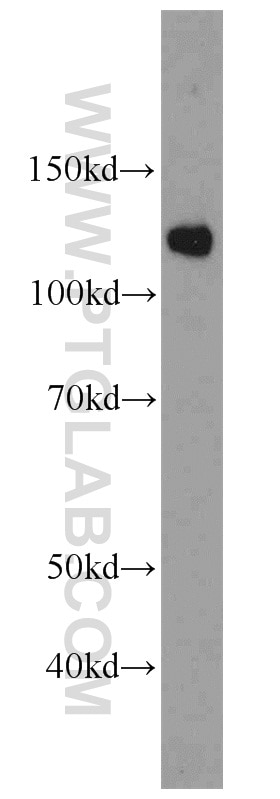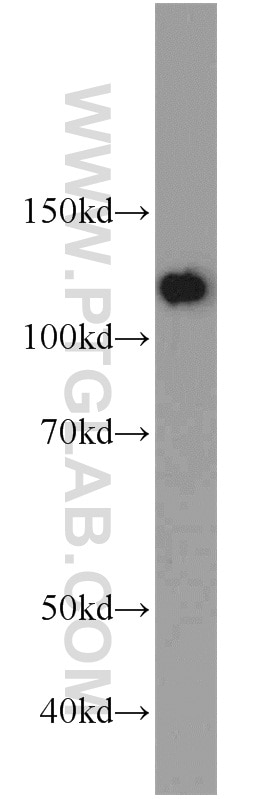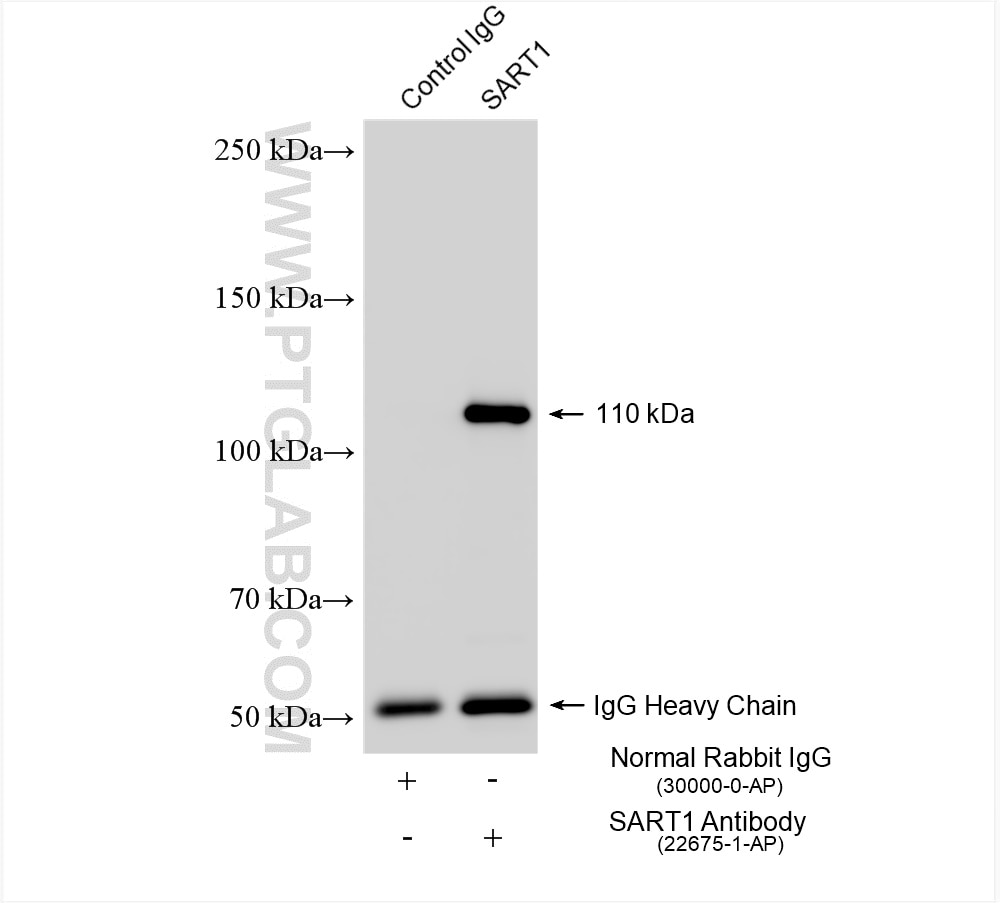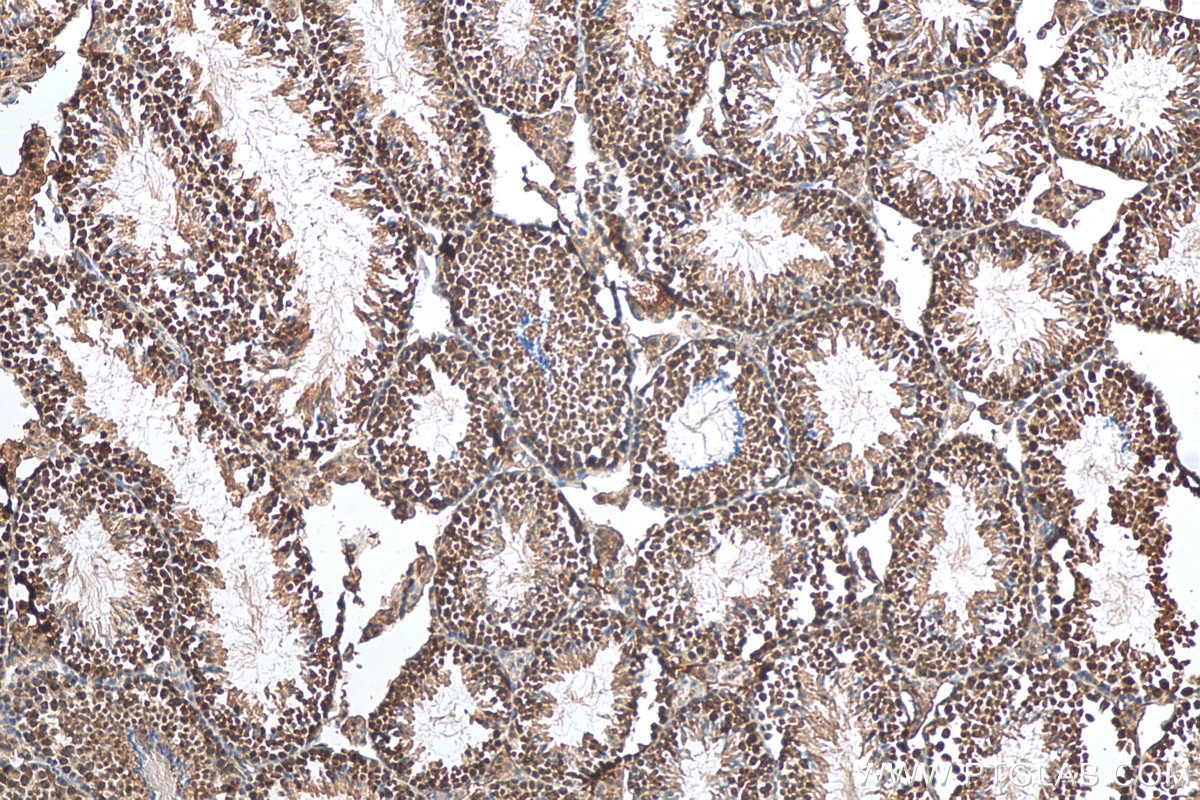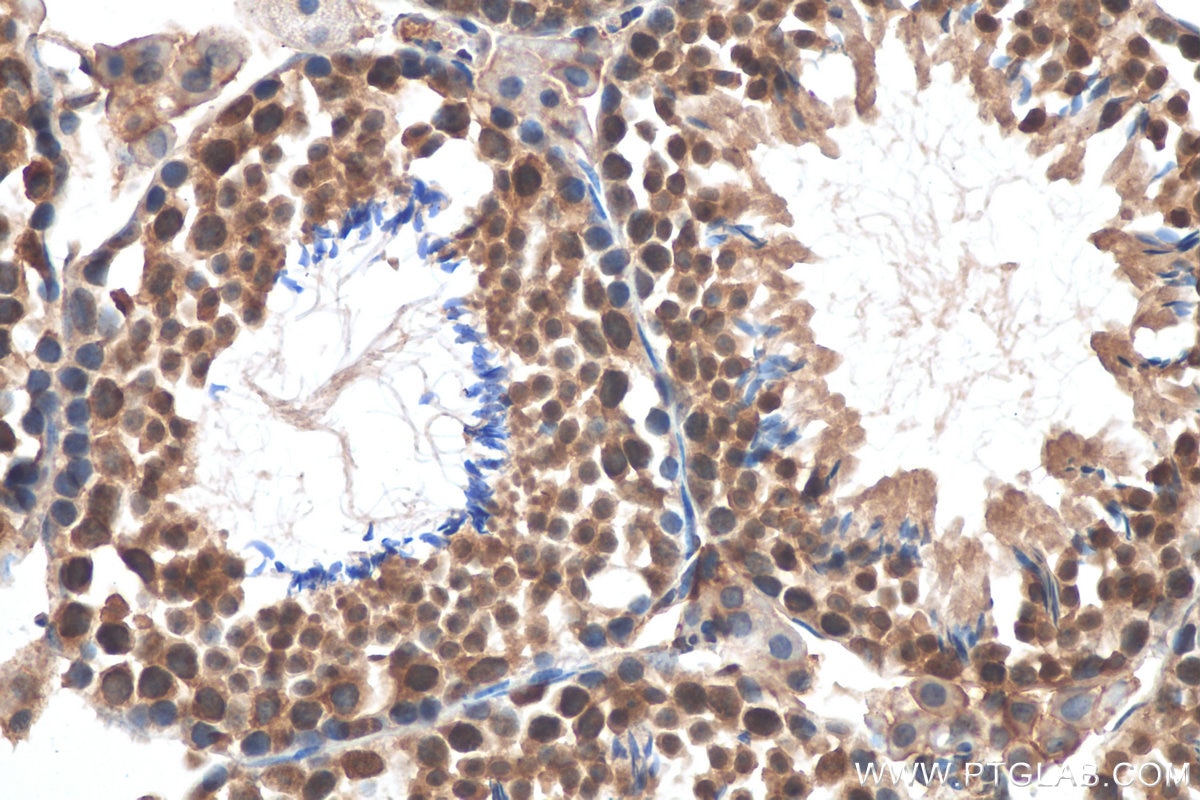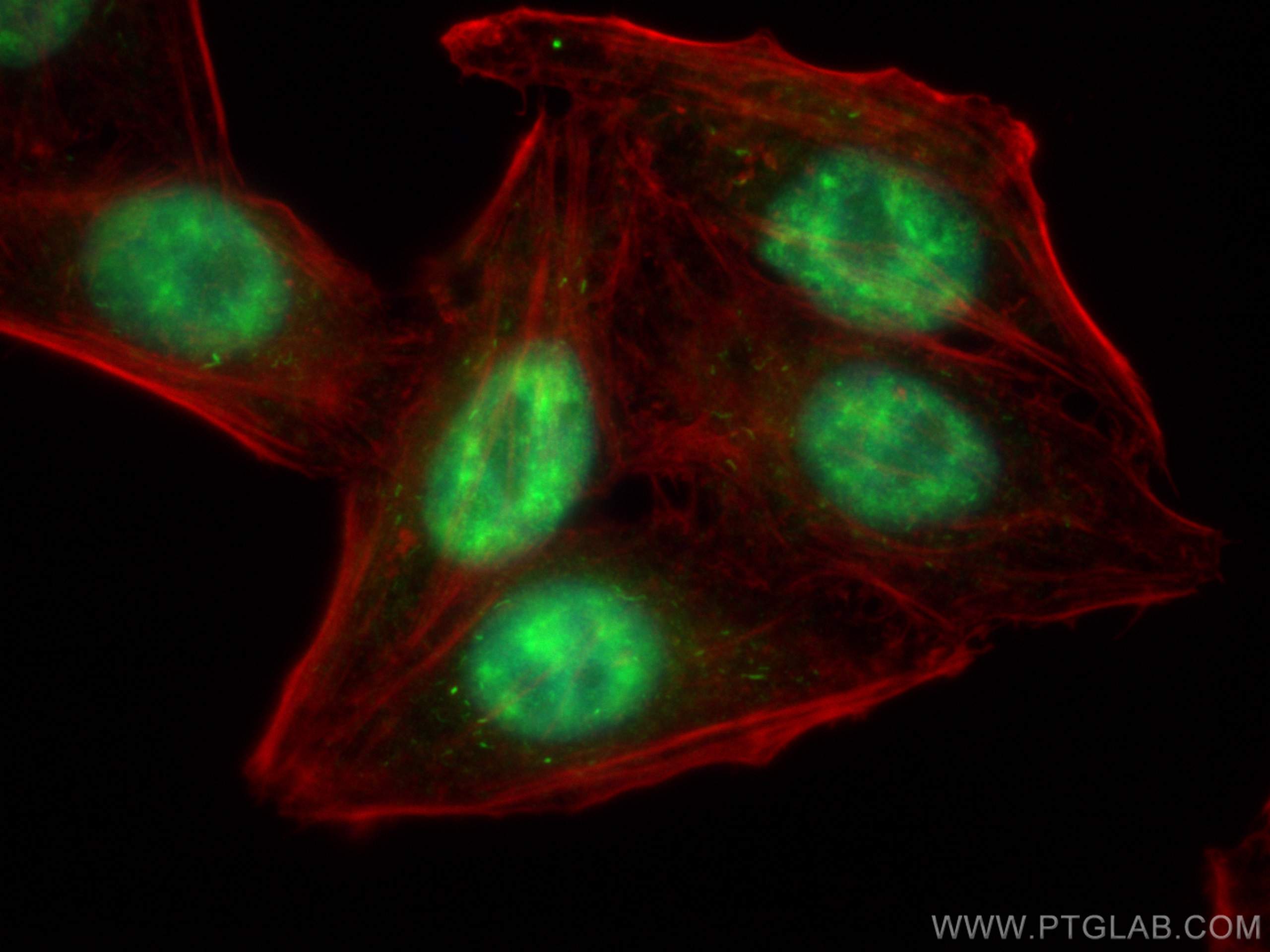Tested Applications
| Positive WB detected in | HeLa cells, Jurkat cells |
| Positive IP detected in | mouse brain tissue |
| Positive IHC detected in | mouse testis tissue Note: suggested antigen retrieval with TE buffer pH 9.0; (*) Alternatively, antigen retrieval may be performed with citrate buffer pH 6.0 |
| Positive IF/ICC detected in | HepG2 cells |
Recommended dilution
| Application | Dilution |
|---|---|
| Western Blot (WB) | WB : 1:500-1:2000 |
| Immunoprecipitation (IP) | IP : 0.5-4.0 ug for 1.0-3.0 mg of total protein lysate |
| Immunohistochemistry (IHC) | IHC : 1:200-1:800 |
| Immunofluorescence (IF)/ICC | IF/ICC : 1:400-1:1600 |
| It is recommended that this reagent should be titrated in each testing system to obtain optimal results. | |
| Sample-dependent, Check data in validation data gallery. | |
Published Applications
| KD/KO | See 1 publications below |
| WB | See 2 publications below |
| IF | See 1 publications below |
Product Information
22675-1-AP targets SART1 in WB, IHC, IF/ICC, IP, ELISA applications and shows reactivity with human, mouse samples.
| Tested Reactivity | human, mouse |
| Cited Reactivity | human, mouse |
| Host / Isotype | Rabbit / IgG |
| Class | Polyclonal |
| Type | Antibody |
| Immunogen |
CatNo: Ag18478 Product name: Recombinant human SART1 protein Source: e coli.-derived, PGEX-4T Tag: GST Domain: 451-800 aa of BC001058 Sequence: EEEKEPVPQPLPSDDTRVENMDISDEEEGGAPPPGSPQVLEEDEAELELQKQLEKGRRLRQLQQLQQLRDSGEKVVEIVKKLESRQRGWEEDEDPERKGAIVFNATSEFCRTLGEIPTYGLAGNREEQEELMDFERDEERSANGGSESDGEENIGWSTVNLDEEKQQQDFSASSTTILDEEPIVNRGLAAALLLCQNKGLLETTVQKVARVKAPNKSLPSAVYCIEDKMAIDDKYSRREEYRGFTQDFKEKDGYKPDVKIEYVDETGRKLTPKEAFRQLSHRFHGKGSGKMKTERRMKKLDEEALLKKMSSSDTPLGTVALLQEKQKAQKTPYIVLSGSGKSMNANTITK Predict reactive species |
| Full Name | squamous cell carcinoma antigen recognized by T cells |
| Calculated Molecular Weight | 800 aa, 90 kDa |
| Observed Molecular Weight | 110 kDa |
| GenBank Accession Number | BC001058 |
| Gene Symbol | SART1 |
| Gene ID (NCBI) | 9092 |
| RRID | AB_2879148 |
| Conjugate | Unconjugated |
| Form | Liquid |
| Purification Method | Antigen Affinity purified |
| UNIPROT ID | O43290 |
| Storage Buffer | PBS with 0.02% sodium azide and 50% glycerol, pH 7.3. |
| Storage Conditions | Store at -20°C. Stable for one year after shipment. Aliquoting is unnecessary for -20oC storage. 20ul sizes contain 0.1% BSA. |
Background Information
Squamous cell carcinoma antigen recognized by T cells (SART1), also known as U4/U6.U5 tri-snRNP-associated 110 kDa protein, is a ubiquitously expressed protein that is involved in mRNA splicing and the regulation of cell proliferation. It has been identified as regulator of c-FLIP and drug-induced activation of caspase 8. The SART1 gene encodes two proteins, the SART1(800) protein is located in the nucleus of the majority of proliferating cells, while the SART1(259) protein is located in the cytosol of epithelial cancers. Genetic variation in the SART1 gene may be associated with breast cancer development. This antibody recognizes the endogenous 800-amino acid SART1, which migrates with an apparent molecular mass of 110 kDa in SDS-PAGE. (PMID: 22027693; 9449708; 19377877; 11350945)
Protocols
| Product Specific Protocols | |
|---|---|
| IF protocol for SART1 antibody 22675-1-AP | Download protocol |
| IHC protocol for SART1 antibody 22675-1-AP | Download protocol |
| IP protocol for SART1 antibody 22675-1-AP | Download protocol |
| WB protocol for SART1 antibody 22675-1-AP | Download protocol |
| Standard Protocols | |
|---|---|
| Click here to view our Standard Protocols |
Publications
| Species | Application | Title |
|---|---|---|
Theranostics Suppressing Sart1 to modulate macrophage polarization by siRNA-loaded liposomes: a promising therapeutic strategy for pulmonary fibrosis.
| ||

